Select Gifford Lectures Delivered at Aberdeen (13 vols.)
Digital Logos Edition
This product has been transferred from Community Pricing to Pre-Pub. The actual funding level may be lower than it appears, which could delay production. The amount of funding still needed will be evaluated and updated soon.
Overview
Scottish judge Adam Gifford believed that the active knowledge of God engenders humanity’s well-being. Thus, in his 1885 will, he bequeathed funds to four Scottish universities—Edinburgh, Aberdeen, Glasgow, and St. Andrews—for the establishment of a lecture series dealing with the topic of natural theology. For over a century, the Gifford Lecture Series has featured the most prestigious theologians, ethicists, philosophers, and scientists, presenting premier research and insightful perspectives on the value of natural theology. Philosopher Jacques Barzun described the Gifford Lectures as “the highest honor in a philosopher’s career.”
This collection contains a selection of 13 lectures from the University of Aberdeen’s Gifford Series. Given between 1899 and 1921, these lectures explore a variety of subjects including historical conceptions of being, science and the philosophy of the organism, moral values, ancient religions, and much more. Anyone interested in theology, philosophy, or science will find this collection a valuable addition to their digital library.
Using the Logos editions of the Gifford Lectures will streamline and enhance your study. Scripture citations link directly to English translations, and important terms link to dictionaries, encyclopedias, and a wealth of other resources in your digital library. Bolster your study of these important talks by cross-referencing and comparing with an extensive library—find what other authors, scholars, and theologians have to say about these topics in philosophy and natural theology. Logos’ tablet and mobile apps let you can take your study wherever you go. With the most efficient and comprehensive research tools all in one place, you can expand your study with just a few clicks.
Interested in all things Gifford? Discover more historic lectures with Logos’ Select Gifford Lectures Delivered at Edinburgh and Select Gifford Lectures Delivered at Glasgow.
- Provides valuable insights into many topics in natural theology
- Includes pioneer Oxford Assyriologist A. H. Sayce’s text on ancient religion in Egypt and Babylon
- Offers a sampling of the early Gifford Lectures given at the University of Aberdeen
- Title: Select Gifford Lectures Delivered at Aberdeen
- Series: Gifford Lectures
- Volumes: 13
- Pages: 6,379
- The Philosophy of the Christian Religion by A. M. Martin
- Naturalism and Agnosticism by James Ward
- The World and the Individual, First Series: The Four Historical Conceptions of Being by Josiah Royce
- The World and the Individual, Second Series: Nature, Man, and the Moral Order by Josiah Royce
- The Religions of Ancient Egypt and Babylonia by A. H. Sayce
- The Religious Teachers of Greece by James Adam
- The Science and Philosophy of the Organism, vol. 1 by Hans Driesch
- The Science and Philosophy of the Organism, vol. 2 by Hans Driesch
- The Idea of God in the Light of Recent Philosophy by A. Seth Pringle-Pattinson
- Moral Values and the Idea of God by William Ritchie Sorley
- The Domain of Natural Science by Ernest William Hobson
- God and Personality by C. J. Clement Webb
- Divine Personality and Human Life by C. J. Clement Webb
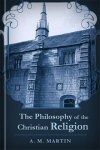
A. M. Fairbairn begins this lecture as “an attempt to do two things . . . explain religion through nature and man; and, secondly, to construe Christianity through religion. The author conceives religion to be a joint product of the mind within man and the nature around him . . .” Fairbairn discusses the philosophy of nature and mind, the person of Christ, Christ as the founder of Christianity, the interpretation of Christ, and religious practice. He also compares Christianity to ideals of religion based on history. It was given in 1891.
A. M. Fairbairn (1838–1912) was a Scottish reformist and liberal theologian. Throughtout his life he was a scholar, minister, teacher, writer, principal, and lecturer. First studying at University of Edinburgh, he also studied at the University of Berlin, and then the Evangelical Union Theological Academy in Glasgow. He obtained doctorates from seven universities during the course of his career and was the founding principal of Mansfield College in Oxford. He is also the author of Christ in Modern Theology.
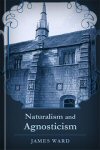
These lectures, given between 1896 and 1898, “discuss in a popular way certain assumptions of ‘modern science’ which have led to a widespread, but more or less tacit, rejection of idealistic views of the world.”
James Ward (1843–1925) was an English scholar of psychology and philosophy. He was educated at Spring Hill College, Birmingham, as well as the Universities of Berlin and Göttingen, and Trinity College, Cambridge. He was elected to a fellowship at Trinity College in 1875, and became the first to hold a professorship of mental philosophy and logic.
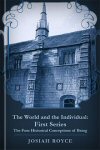
In these lectures Royce discusses three approaches to natural theology. They delve into the “philosophy of religion,” elaborating on the metaphysics of being apart from special revelation. In this first set, Royce discusses his take on absolute idealism in relation to realism, mysticism, and critical rationalism.
Josiah Royce (1855–1916) was an American objective idealist philosopher, professor, and writer. Born in California, he studied Classics at the University of California, philosophy in Germany and John Hopkins University, where he earned a PhD in 1878. He had a long career as philosophy professor and eventually department chair at Harvard University. He published widely, including The Religious Aspect of Philosophy and The Spirit of Modern Philosophy.
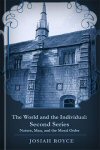
In these lectures Royce discusses three approaches to natural theology. They delve into the “philosophy of religion,” elaborating on the metaphysics of being apart from special revelation. In this second set, he defends his absolute idealism and analyzes practical questions of the individual existing in the world.
Josiah Royce (1855–1916) was an American objective idealist philosopher, professor, and writer. Born in California, he studied Classics at the University of California, philosophy in Germany and John Hopkins University, where he earned a PhD in 1878. He had a long career as philosophy professor and eventually department chair at Harvard University. He published widely, including The Religious Aspect of Philosophy and The Spirit of Modern Philosophy.
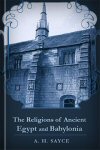
In these lectures, Archibald Sayce discusses the religious traditions and practices of ancient Egypt and Babylonia. He analyzes the religious thought of these civilizations through the lens of being the background for Judaism and later, Christianity, and traces how these traditions relate to contemporary understandings of religion.
A. H. Sayce (1845–1933) was a pioneer English Assyriologist. Educated at Oxford, he went on to become a highly respected professor of philology there. During his life, he traveled and conducted field work all over the world. After helping found the Alexandria Museum in Cairo, he returned to Oxford, where he was professor of Assyriology for many years, publishing widely on the Assyrians, works for which he is best-known.
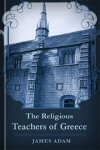
In these lectures, James Adam examines religious tradition in ancient Greece, particularly as it developed through poets and philosophers. He explores the conflict between poetry and philosophy and traces it in the religious development of ancient Greece from Homer to Plato. Through his analysis, Adam aims to shed light on early Christian literature by providing a historical background of this tension as it developed in ancient Greece.
James Adam was born in Scotland in 1860. Educated at the University of Aberdeen and Caius College, Cambridge, he became a highly regarded classicist, teaching at Cambridge for many years. His most significant work are his translations and commentaries of Platonic dialogues. He died in 1907.
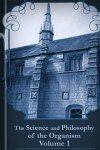
This lecture, given in 1906, is the premier part of Hans Driesch’s first complete presentation of his ideas on the philosophy of organism, given at the University of Aberdeen. Making a strong case for the close connection between philosophy and science in his system of analysis, Driesch gives an overview of scientific knowledge needed to understand his ideas, and begins analysis of the philosophy of living nature.
Hans Driesch was a German biologist, philosopher, and theologian. He was born in 1867 and studied at the Universities of Freigurg, Jena, and Munich, under such scholars as Ernst Haeckel, Oscar Hertwig, and Christian Ernst Stahl. He conducted much important research during his life, especially in the field of embryology. He became professor of natural theology at the University of Aberdeen, and later taught at several other universities. He is known for works such as his complete system of philosophy, Theory of Order, as well as Logic as a Task and Theory of Reality. He died in 1941.
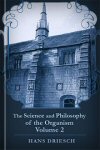
Delivered in 1908, this lecture is the latter part of Hans Driesch’s first complete presentation of his ideas on the philosophy of organism, given at the University of Aberdeen. Making a strong case for the close connection between philosophy and science in his system of analysis, here he discusses thoroughly the philosophy of organism, as well as further considerations about fundamental features of biological organisms.
Hans Driesch was a German biologist, philosopher, and theologian. He was born in 1867 and studied at the Universities of Freigurg, Jena, and Munich, under such scholars as Ernst Haeckel, Oscar Hertwig, and Christian Ernst Stahl. He conducted much important research during his life, especially in the field of embryology. He became professor of natural theology at the University of Aberdeen, and later taught at several other universities. He is known for works such as his complete system of philosophy, Theory of Order, as well as Logic as a Task and Theory of Reality. He died in 1941.
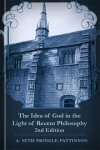
In these lectures, given between 1911–1913 at the University of Aberdeen, Andrew Seth Pringle-Pattinson discusses the rationalist philosophy of Kant, the Idealist philosophy of Hegel, and the opposing philosophy of positivist naturalism. He explores Enlightenment philosophy and nineteenth-century biology in his attempt to determine their relationship to Christian belief.
A. Seth Pringle-Pattinson (1856–1931) was a Scottish philosopher. He taught logic and metaphysics at the University of Edinburgh, and published important works, including Hegelianism and Personality and The Development from Kant to Hegel.
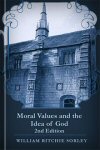
These lectures from William Ritchie Sorley, delivered between 1913 and 1915, discuss the relationship between existence and goodness. Sorely seeks to “enquire into the bearing of ethical ideas upon the view of reality as a whole which we are justified in forming. The argument begins with a discussions of values and ends with the idea of God.”
William Ritchie Sorley (1855–1935) was a Scottish philosopher who was Knightbridge Professor of Moral Philosophy at Cambridge. He also taught at University College, Cardiff, and University of Aberdeen. He is best remembered for his work History of English Philosophy.
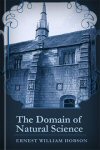
The first mathematician to be invited to deliver a Gifford Lecture, Ernest William Hobson’s series of twenty lectures were a unique development in the expanding Gifford Lectures. Delivered between 1920 and 1922, Hobson explores the position that the scientific view of the world “should rightly occupy, in relation to the other factors of human experience with which religion and philosophy are concerned . . .”
Ernest William Hobson (1856–1933) was a British mathematician. He was Sadleirian Professor at Cambridge and is known for written works such as Theory of Functions of a Real Variable.
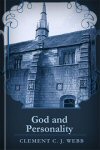
In these lectures, delivered between 1917 and 1919 at the University of Aberdeen, Clement Charles Julian Webb explores the concept of personality and “especially the place to be assigned to personality in our conception of the nature of God . . .”
Clement C. J. Webb (1865–1954) was a British philosopher, theologian, and historian. Educated at Oxford, he was a fellow of Magdalen College, Oxford and professor of Christian religion at Oriel. He wrote works such as Problems in the Relations of God and Man and The Historical Element in Religion.
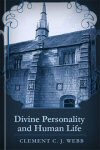
In these lectures, delivered between 1917 and 1919 at the University of Aberdeen, Clement Charles Julian Webb explores the concept of personality and “especially the place to be assigned to personality in our conception of the nature of God . . .”
Clement C. J. Webb (1865–1954) was a British philosopher, theologian, and historian. Educated at Oxford, he was a fellow of Magdalen College, Oxford and professor of Christian religion at Oriel. He wrote works such as Problems in the Relations of God and Man and The Historical Element in Religion.
Reviews
1 rating

Ian Carmichael
11/25/2013
The Giffords deserve a place in every thoughtful, studious Christian's library! (Yes there are some duds. Not many over the decades.)